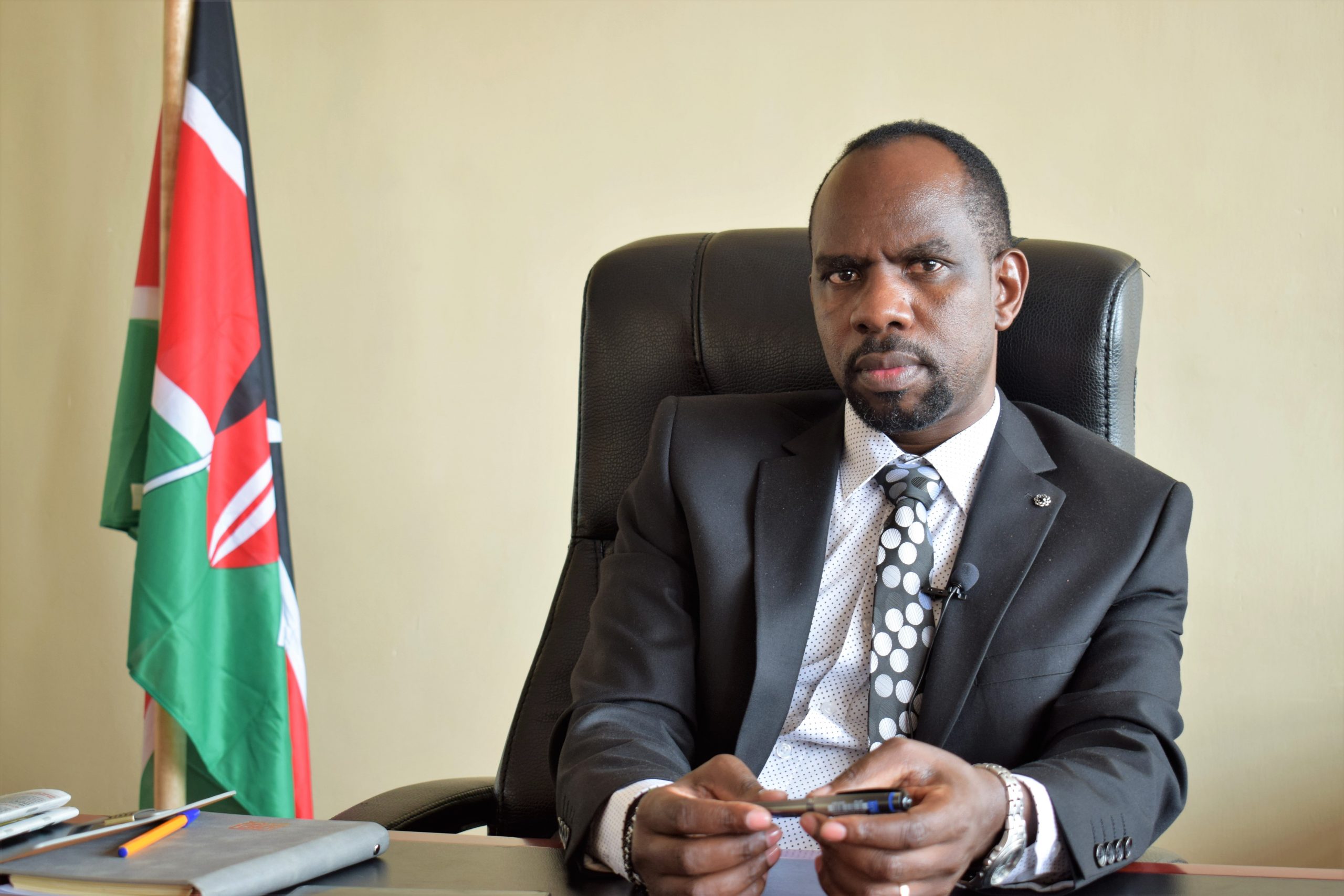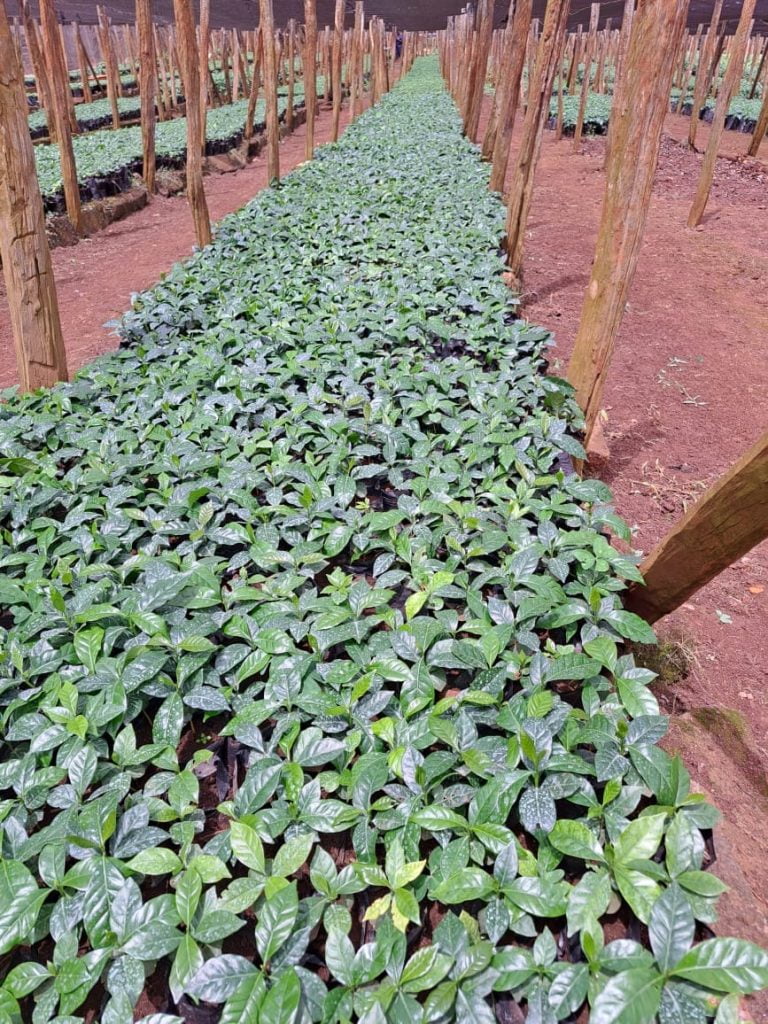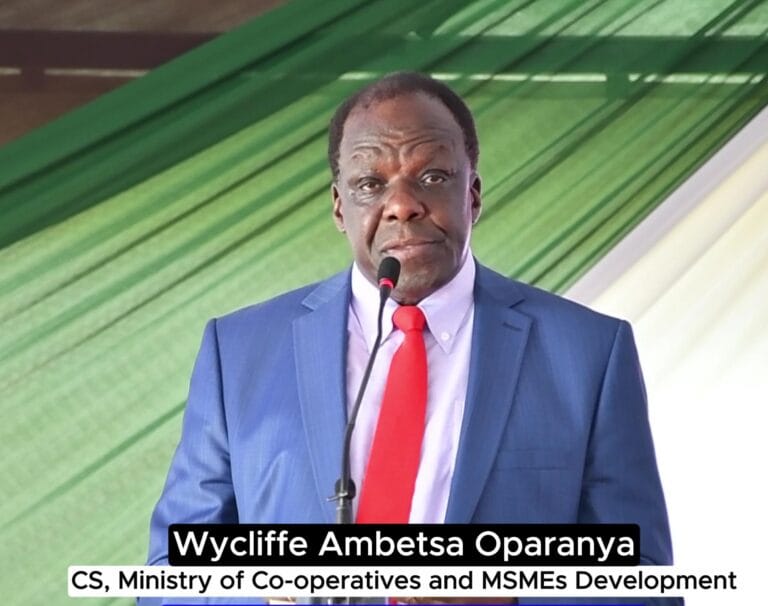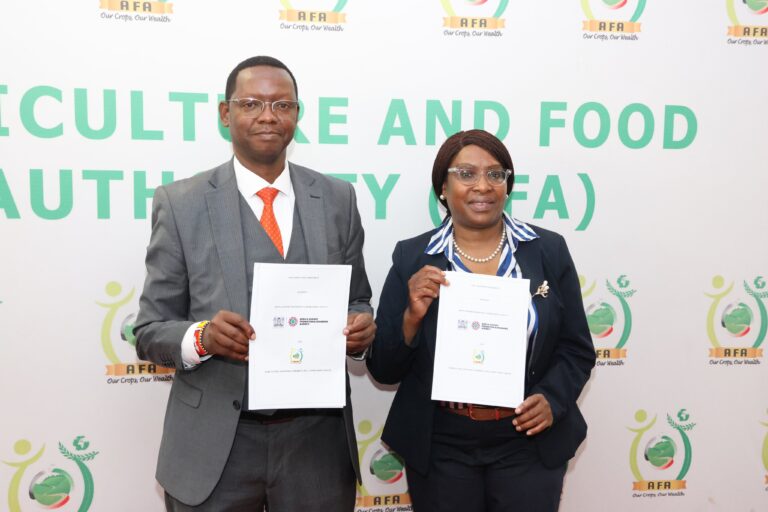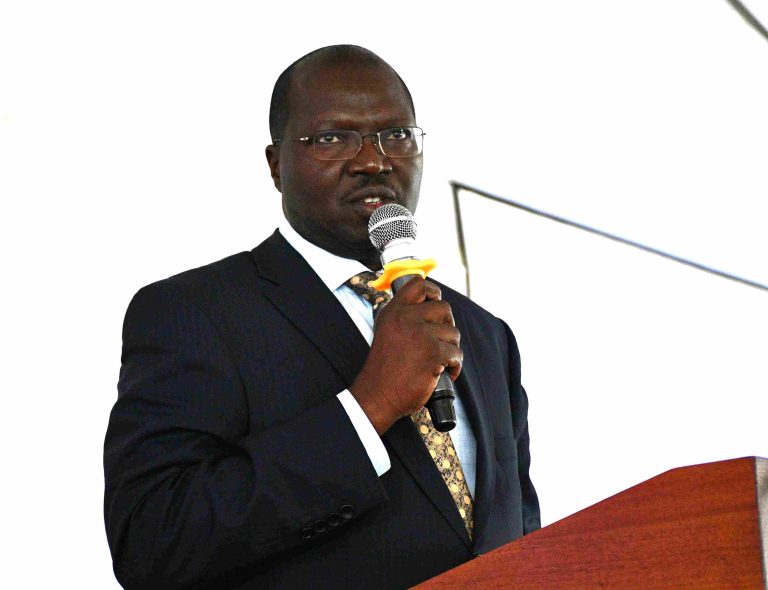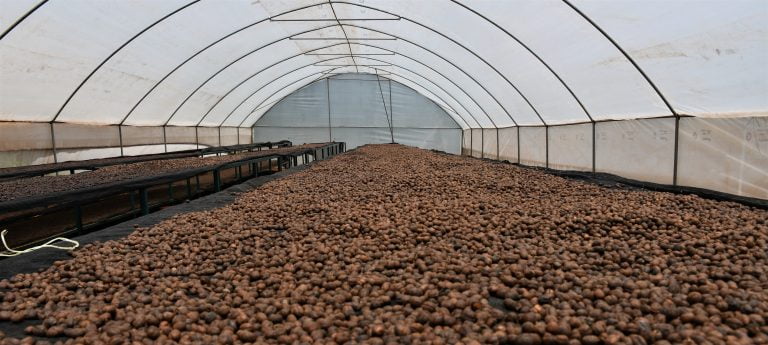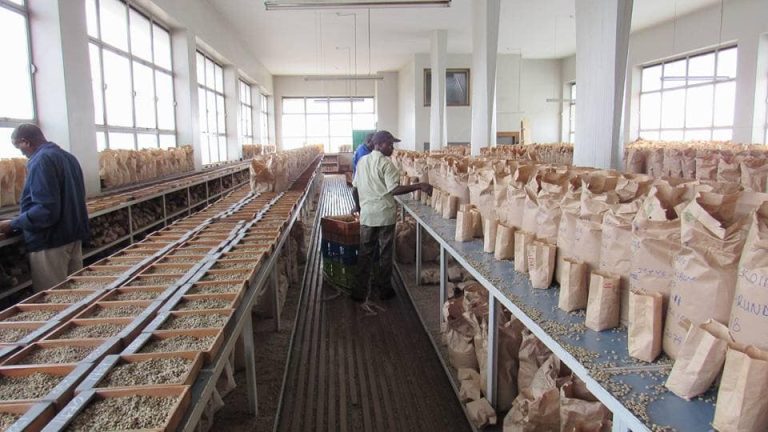By Kimuri Mwangi
When New Kenya Planters Cooperative Union (New KPCU) was created, all eyes were on the people who would get the job to steer it considering that it’s precursor KPCU was under liquidation and carried a lot of baggage. Kilimo News caught up with one of the men tasked with this and below is an excerpt from our exclusive interview with New KPCU Chairman Henry Gichuhi Kinyua. He was appointed by the President vide the Kenya Gazette Vol. CXXI No. 174 of December 20, 2019, to chair the board for a period of one year.
You can start by telling us what the mandate of New KPCU is.
Henry Kinyua: The mandate of New KPCU is like a dual mandate and the first one is to conduct coffee business, which is milling, marketing and warehousing. The other mandate is administering the Coffee Cherry Advance Revolving Fund.
What has been happening since you took over as the Chairman?
Henry Kinyua: There has been quite a number of issues putting the systems in place. As you are aware, our precursor (KPCU) was put under liquidation, a process that is still ongoing. So when we took over in the first season we milled about 400 tonnes of farmers’ coffee from 11 cooperatives and about 30 estates. We established a good working relationship with them where coffee would not be milled without their representative in the mill. We then unbundled our services to the farmers. For example, you can bring your coffee to New KPCU to be milled and market it yourself. You can also mill the coffee elsewhere and bring it to New KPCU for marketing. You can also mill it elsewhere and bring it to us for warehousing. This was very important because some Counties have their own coffee mills like Machakos and we needed to work with them. Additionally, there are individual estate farmers who can be able to look for their own markets so they come, mill with us and we facilitate them with logistics to help their coffee reach the market as we are licensed to do that.
Have you faced challenges so far?
Henry Kinyua: I think challenges are quite many actually. One is the fact that there were a number of issues with KPCU that is under liquidation. There were farmers whose coffee was sold in 2008-2009 and believe you me they were never paid. For the first batch, the CS worked with the Commissioner of Cooperatives and after an audit, they were paid about Kshs.60 million. There were still other grievances that farmers expect to be resolved.
The other challenge was that most of their facilities were dilapidated and we need to rehabilitate them so that we can do good business. KPCU also didn’t have certification and we had to start the process of ensuring that we get what we call “Chain of Custody Certification” so that farmers who have already acquired certification can mill with us without losing their status.
The fact that we were inaugurated on the 1st of January also meant that we were outside the government budget cycle. So there was a whole duration when we could not do many things as even most of our staff were seconded from the Department of Cooperatives. From the 1st of July, we are inside the government budget so we can start hiring people and do a lot of things as an organization.
Also, like in any industry, every new entrant is viewed with a lot of suspicions. Some of the existing millers and marketers waged a massive campaign against us which is still ongoing. There is a lot of misinformation from different quarters saying that New KPCU is coming to monopolize the coffee sector. We are new and someone thinks we have come to spoil the soup, so this was expected. As time goes by, quite a number of people are understanding that Kenya being a free market, this is an area where anybody can enter as long as you meet the requirements, and let the farmers make the choice on who is treating them with respect and offers the best returns. While it is not unexpected, it is saddening that some of these main organisations could spend so much time with misinformation. If you look at the last five to ten years, production in Uganda has shot up five times, in Ethiopia it has doubled, while production in Kenya has gone down. So we can see our competitor is the one eating our pie in the global market and is not among ourselves. There were even court cases but with time now, everyone is able to see that there is enough space for everyone. I hope going forward there will be more collaboration among all the players to fill the gap as our production is going down at a very high rate, our farmers are not feeling well-remunerated and we need to make sure extension services reach them and market ourselves together as a country.

What has kept you going?
Henry Kinyua: We have a very supportive Cabinet Secretary, Peter Munya. He has been very supportive in pushing on what needs to be done. Also to the farmers we are dealing with, we have been able to demonstrate our commitment, accountability and a high level of transparency to them and I have seen this working for us.
Has your past experience as an Agriculture County Executive Member (CEC) come in handy?
Henry Kinyua: Absolutely. I think it all came together in terms of what I have done before both from the technical side that is agronomy and the networks I have built. I am using my networks, my expertise, my experience and that has assisted me in this area. Being a CEC particularly in a county like Nyeri that produce a lot of coffee was very helpful, because in Nyeri we had developed a coffee strategic plan for the county, and most of the issues New KPCU is doing or we will do we had addressed. I am also happy now that there is an ongoing coffee revitalization programme that will go down to the counties because it doesn’t matter whatever happens at the top, if the farms are not being rejuvenated and not having production increasing from the current amount of 2 to 5 0r 10, then clearly we will have a problem.
What is the state of the coffee mills?
Henry Kinyua: we received from the liquidators the coffee mills in Dandora, Sagana and Meru. We first did the initial servicing to ensure that they can mill the coffee we receive from farmers. We are now in the process of refurbishing them. We also want to install a robust ICT system that will automate the whole coffee business from the time the coffee parchment is delivered to farmers’ payment.
Tell us about the Coffee Cherry Advance Revolving Fund.
Henry Kinyua: This was talked about a long way before we even came on board. The fund is governed by very stringent regulations, very specific on what needs to be done. There is a lot of expectations and the farmers expected that you guys come in, give us money immediately but then, look at the regulations. The Public Finance Management Act, Coffee Cherry Advance Regulations 2019 was first published by the Treasury in November 2019. It was subjected to public participation in January and republished with the views collected on March by the Treasury. They had to go to Parliament to be passed then back to Treasury. We got feedback from Treasury in June that the process had been completed. So it’s like from January to June we couldn’t do anything although we had the money. The Treasury released the Kshs. 2.7 Billion to New KPCU in March but we could not administer it until the process of passing the regulations was complete.

Who qualifies to get the funds?
Henry Kinyua: As per the Coffee Cherry Advance Revolving Fund Regulations 2020, you must be a Kenyan farmer registered with a Cooperative. If you are an estate farmer, you must be growing coffee in an area below 20 acres. However, for estate farmers, they must have their coffee milled by New KPCU as it is the security for the funds they receive. For cooperatives, you don’t have to mill or market your coffee through New KPCU to qualify.
You can borrow up to Kshs. 20 per kilogram of cherry. However, you can also borrow at parchment level when the coffee has already been delivered to the mills where you qualify for 40% of the value of that coffee. The money is interest-free but you just pay an administration fee of 3% recovered before you get your money.
It is also important to say that the funds are available to those who are having coffee cherry. Right now the area harvesting cherry largely is Meru region and we have some Murang’a farmers who had an early crop. We expect a lot of borrowers from the main crop during the October- November season. Right now the New KPCU team is putting in place systems to ensure that when that time comes we will disburse the money immediately to farmers as they apply.
There have been concerns from some quarters that the funds are not available to all counties
Henry Kinyua: I want to state very clearly that the Coffee Cherry Advance Revolving Fund is available to all coffee farmers in all counties. What happened is that due to the delay we had when we were establishing ourselves our team was not able to move around and sensitize all farmers. We have a very supportive CS who went around sensitizing farmers although Covid19 also slowed down this process. But now the plan is in place and the team is going around the country sensitizing each farmer on where to get the forms and how to apply. We are also planning to go to cooperatives, train the clerks on how to fill the forms so that when a farmer comes, fills the form and signs it, New KPCU will arrange with the cooperatives how to collect these forms and within one week the farmer gets the money. Money is sent directly to the farmer’s account or through mobile money services.
What can you say about the future plans of New KPCU?
Henry Kinyua: New KPCU being a State Corporation will be here for a long time so anybody out there wishing it away will be very mistaken. What the President wanted was first of all for New KPCU to come and take the assets of KPCU once the liquidators are through, optimize and protect them like ensuring all title deeds and everything is well protected. But later and CS Munya has said this, the government’s intention is taking the organization back to the farmers as it was owned by farmers. One activity the liquidators were carrying out is a forensic audit to determine the bona fide shareholders of the old KPCU. I can see in the next two or three years, farmers jointly owning New KPCU with the government.
I also see New KPCU supporting farmers to get a direct market for their coffee. There has been a problem with the coffee exchange but that one is being addressed. The idea is to give the farmer a choice as a partner.
New KPCU is also looking at how we can establish an efficient extension service in partnership. We are not building an extension department but we are looking at how we can partner using ICT to create a private sector youth-driven, IT-led extension services. This is important because coffee is a very technical crop. Without proper advisory, farmers will continue using the inputs and still not getting the yields.


